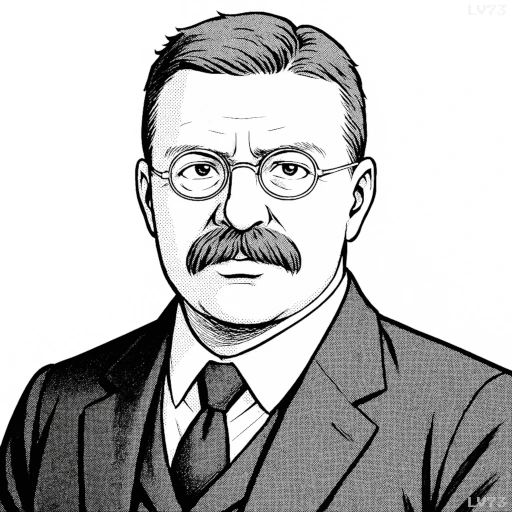“Probably the greatest harm done by vast wealth is the harm that we of moderate means do ourselves when we let the vices of envy and hatred enter deep into our own natures.”

- October 27, 1858 – January 6, 1919
- American
- Politician, military officer
table of contents
Quote
“Probably the greatest harm done by vast wealth is the harm that we of moderate means do ourselves when we let the vices of envy and hatred enter deep into our own natures.”
Explanation
In this quote, Roosevelt reflects on the negative impact that wealth—especially vast or unchecked wealth—can have not just on society, but on those who are not wealthy. He suggests that while the concentration of wealth in the hands of a few can cause social and economic harm, a more insidious consequence is the emotional and psychological damage it can inflict on those who envy or resent the wealthy. He argues that envy and hatred are corrosive forces that, when allowed to take root in individuals of more moderate means, can undermine their own peace of mind and moral integrity. These emotions, in his view, can cause people to lose sight of their own values and distract them from their own goals, harming both their personal well-being and their relationships with others.
Roosevelt’s words come from his broader social and political philosophy, which often addressed the imbalance of wealth in society. While he advocated for progressive reforms to address economic inequality, he was also keenly aware of the psychological and social costs of wealth disparity. Roosevelt believed in a society where moral character and personal responsibility were important values. He saw envy and hatred as destructive forces that not only hurt the individual but also harmed society as a whole by fostering division and resentment.
In modern times, this quote resonates in discussions about economic inequality and its social consequences. As wealth gaps continue to grow, there is often a rise in resentment or discontent among those who feel left behind. This sentiment can be seen in the polarization of political debates or in the disillusionment felt by many toward the wealthy elite. Roosevelt’s reminder highlights the importance of emotional resilience and moral clarity, encouraging people not to be consumed by negative emotions but to focus on their own growth, dignity, and peace of mind—regardless of external circumstances.
Would you like to share your impressions or related stories about this quote in the comments section?




